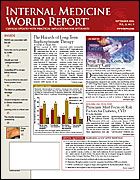Publication
Article
Carbohydrate Content Predicts the Glycemic Effect of Foods
Author(s):
The glycemic index for classifying carbohydrate foods has been extensively explored, but firm conclusions on its clinical utility have been elusive. The loudest criticism proclaims that the glycemic index of individual carbohydrate foods can be canceled out by the effects of fat and protein in mixed meals, and this appears to be borne out in 2 recent studies.
Am J Clin Nutr
Believing that these studies had misclassified the glycemic indices of foods or were otherwise methodologically flawed, the authors of a new study (. 2006; 83:1306-1312) present a strong argument that the glycemic index retains its value as a prognosticator of glycemic response (ie, the effects of carbohydrate-containing foods on serum glucose concentration) in mixed meals.
A crossover design was used to evaluate the glucose and insulin responses of 6 test meals in 16 adults in Sydney, Australia (mean age, 23 years; mean body mass index [BMI], 21.3 kg/m2), and 8 test meals in 10 adults in Toronto, Canada (mean age, 26 years; mean BMI, 22.4 kg/m2).
Of the 14 different test meals used, 13 consisted of typical breakfast foods, and 1 was 50 g of oral glucose. The test meals varied widely in content.
A fasting blood sample was obtained from each participant after a 10- to 14-hour overnight fast. Additional blood samples were obtained at 15 to 120 minutes after they began eating the meal.
P
Analysis showed a 3-fold range in glucose and insulin responses of the Sydney test meals and a 2.4-fold range in glucose responses of the Toronto test meals ( <.001 for both). The fat and protein content of the test meals had little effect on the resultant glucose responses.
P
P
P
The vast majority of the difference in glycemic response was attributed solely to the carbohydrate content ( = .002) and glycemic index ( = .022). Combined, these 2 factors were responsible for 88% of the differences in glycemic response ( <.001).
"Because of large between- and within-person variation of glycemic responses, the carbohydrate source and amount cannot be used to predict the absolute glycemic response of a person on a single occasion," concede Thomas M. S. Wolever, Department of Nutritional Sciences, University of Toronto, and coauthors. They add, however, that "when properly applied, the GI [glycemic index] and carbohydrate content are remarkably good predictors of the average glycemic effect of mixed meals with a range of nutrient contents."
Key points
When properly applied in realistic settings, the glycemic index persists as a strong predictor of the glycemic effect of mixed meals.
In different meal combinations, the carbohydrate content and glycemic index accounted for almost 90% of the difference in the glycemic response.
The protein and fat in these mixed meals did not affect the glycemic response.






